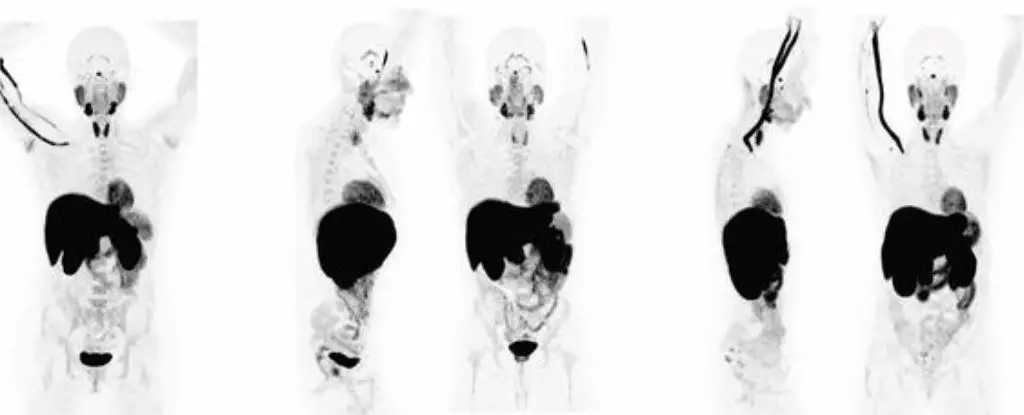

Long COVID, the lingering aftermath of a SARS-CoV-2 infection, has been a topic of much debate and mystery. Contrary to popular belief, recent studies have shed light on the fact that this brutal illness is not psychosomatic but rather deeply rooted in biology. Researchers from the University of California, San Francisco, CellSight Technologies, and Kaiser Permanente South San Francisco Medical Center have conducted a groundbreaking study that reveals the true extent of the impact the virus has on the immune system.
The study involved 24 patients who had recovered from COVID-19, undergoing whole-body PET scans using a radioactive tracer. The results were startling, as the scans showed abnormal T cell activity in various parts of the body, including the brain stem, spinal cord, bone marrow, nose, throat, lungs, and gut. What was even more surprising was that these abnormalities were present not only in patients with long COVID symptoms but also in those who had fully recovered from the acute phase of the virus.
One of the most concerning findings of the study was the persistence of changes to T cell activity in multiple organs, even in patients who had recovered from COVID-19. This lingering immune activity, present in some cases up to two and a half years after the initial infection, suggests that the virus may continue to have a long-term impact on the body’s immune system.
The researchers at UCSF concluded that the abnormal immune activity observed in the study is likely linked to the presence of long COVID symptoms. Patients with ongoing respiratory issues, in particular, showed increased uptake of the PET tracer in their lungs and pulmonary artery walls, indicating a direct correlation between immune activity and symptom severity.
The implications of these findings are profound, as they challenge the current understanding of long COVID as a purely post-infectious condition. The study suggests that the persistence of the SARS-CoV-2 virus in the body, along with abnormal immune activity, may be key factors in the development and continuation of long COVID symptoms. This new knowledge opens up possibilities for more targeted diagnostic methods and treatment approaches for patients suffering from this debilitating illness.
While the findings are only correlative at this point, they provide a compelling argument for further research into the biological mechanisms behind long COVID. By confirming these results in larger cohorts and continuing to explore the role of the immune system in the development of long COVID, we may unlock new avenues for understanding and ultimately treating this complex illness. The road ahead may be long, but with each new discovery, we come one step closer to unraveling the mysteries of long COVID.
In the realm of software development, the ability to swiftly and accurately address bugs is…
The realm of quantum computing and communication is not just an abstract dream anymore; it…
In a remarkable leap for the field of material science, a collaborative research initiative has…
Throughout Earth's vast history, our planet has endured five major mass extinction events that reshaped…
Rainfall is a vital element of our planet’s hydrological cycle, yet many aspects of its…
On a night when the universe aligns, a mesmerizing phenomenon awaits: the appearance of the…
This website uses cookies.